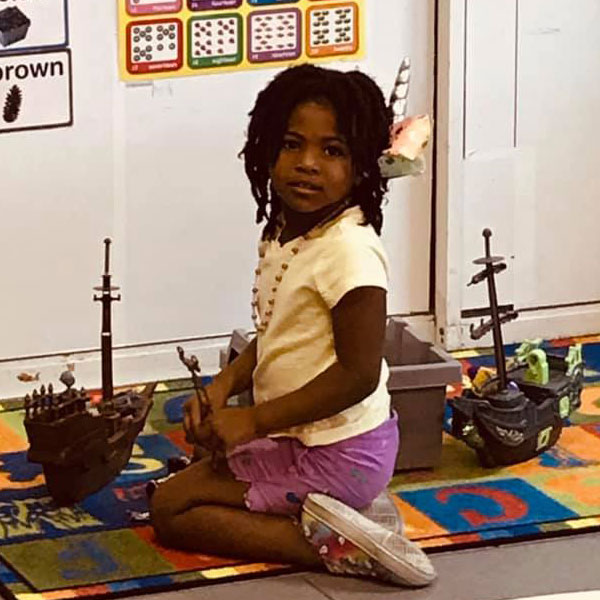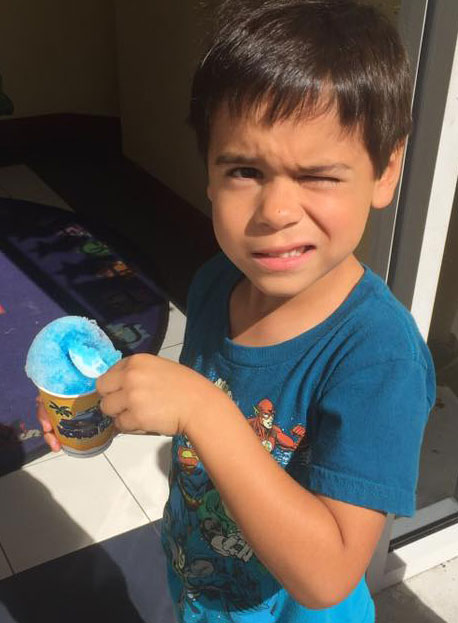As a parent, it’s no surprise that you often come across some really complicated issues. There are so many things that you get confronted with out of the blue and are expected to instantly know how to handle it. Like tantrums, teaching right from wrong, discipline, the list goes on. But one of the most difficult things is helping your child adapt socially. Teaching your kids to navigate complicated social situations can be difficult at any age, but trying to help your toddler deal is a whole different ball game. So, here are some signs your toddler needs to socialize more, according to experts. I checked in with education specialist and member of The Goddard School Educational advisory board, Lee Scott; early education expert and consultant and founder of Sunshine Preschool in Hopkinton, MA, and author of You’ve Got This! Keys To Effective Parenting For The Early Years, Christine Kyriakakos Martin; and program coordinator for intellectual and developmental disabilities and mental health at Providence Saint John’s Child Development Center in Santa Monica, CA, Dr. Mayra Mendez, to hear the clues your little one could use some more real life face time with peers.
Kids do awkward and embarrassing things sometimes. In fact, it’s almost like they’re trying to embarrass us in public on purpose. There have been several times when my son and I would run into our neighbors in the elevator and instead of responding to their very polite, “Oh, hello” like a normal child or, you know, human, he would instead pretend he was a robot or *insert large cat species here* and give them his best robot voice or big hiss/roar combo — talk about socially awkward.
Who knows why kids do some of the things they do, but as parents, it’s our job to teach them manners, empathy, and help them learn complicated things like negotiation and compromise. Regardless of whether your child experiences some social anxiety or not, the good news is there are things we can do to help our children adapt. Scott tells Romper, “The best thing to do is to prepare your child. Talk about what you are going to do, what she’ll see, who will be there, and how much fun it will be. Give your child time to adjust upon arrival. Talk to the other children or adults with your child.” It’s a relief to know that there are things we can do to help our kids adapt better, but here are some common signs that they may need some extra time adjusting.
1. They Have A Hard Time Sharing
I know, what kid actually wants to share? Probably not many and that’s totally normal. Even adults have a hard time sharing. That’s because sharing takes some serious negotiating skills, which can only be learned by experiencing what it’s like to be around other kids in those kinds of to-share or not-to-share situations.
2. They’re Overly Anxious In Social Situations
We all know that feeling when we walk into a room full of people and do not know a single person there. Even for adults this can feel intimidating, so imagine what this must feel like for your little one. Scott says, “Social anxiety is common, but some children are more insecure in social settings than others, especially new situations or surroundings.” While it’s true some kids take a lot longer to warm up in certain social situations, they should be able to adapt, even if it happens at a slower pace. Scott suggests resisting the urge to jump in and come to the rescue. Give them a chance to adapt and self soothe. You can also help them by giving some positive reinforcement like “[praising] your little one’s social behavior when he does respond to others, has eye contact, or plays with another child,” Scott says.
3. They Cling To You & Won’t Let Go
“If she’s clingy and appears afraid, she may be having a hard time adjusting,” Scott says, and Dr. Mendez agrees. “Some kids are just more introverted. Introversion might be better understood as quiet, thoughtful, cautious traits. Some babies demonstrate quiet, calm, observational characteristics that inform their preference for solitude, low stimulation environments, and slow movements.”
It’s all about taking notice. Martin tells Romper that parents must understand their child’s temperament. Children “may be hesitant to engage with peers or other adults based on their temperament.” So show your child patience and let them adapt at their own pace and keep their natural personality in mind. Martin points out that “a small home play group or low ratio preschool setting may be the environment for a child who is an observer rather than a participant.”
4. They’re Aggressive To Other Children
Toddlers aren’t supposed to have the cognitive functions to be able to understand how to control their emotions. If they’re angry and they aggress toward another child, they have to learn and develop the tools to behave in a more pro-social way. Kids will learn about empathy by playing with other children in social situations. Dr. Mendez says, “Children benefit from all relationships and need to interact and engage with others to learn
negotiation, build empathy, develop interpersonal problem-solving skills, and support social-emotional competence.” So it’s important for kids to get the experience of learning to get along with other kids through social interaction.
Martin agrees, “[Aggressive] behaviors warrant adult support or intervention. A young child needs parents to model positive behavior, give them the words or resources of social skills. It is not developmentally appropriate that a child knows how to respond to social situations without support and modeling. If a parent demonstrates empathy with their own child, they will learn to empathize. They will hug, comfort a child who is hurt. When they engage in play and become aggressive, it is the adult who can show alternative methods of how to wait their turn, share, or use their words. Play tutoring is key with young children — they need guidance to self regulate their emotions and engage in social interactions with their peers.”
5. They Won’t Explore Their Environment
We’ve all gone somewhere with our little one thinking they would love it, only to watch them sit by themselves and not explore or enjoy their environment at all. Help them feel more comfortable by “looking for activities of high interest to your child. Things that he likes to do could be irresistible, and he may want to join in the fun. Your child may also benefit from a buddy versus jumping into large group situations,” Scott says. The best thing we can do for our kiddos is model good behavior and help guide them as best we can through tricky situations. And don’t forget to give them space to navigate things for themselves sometimes.



